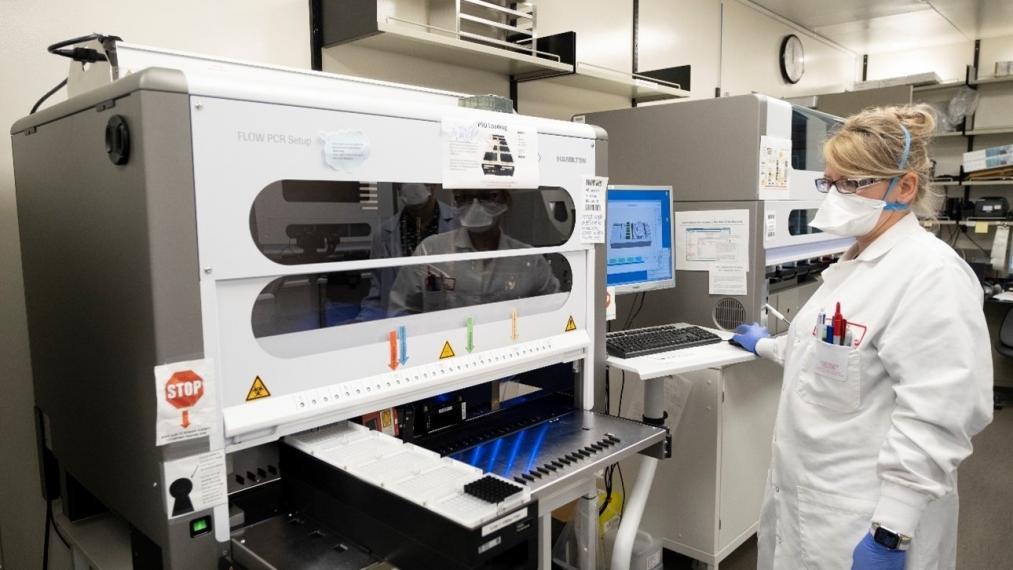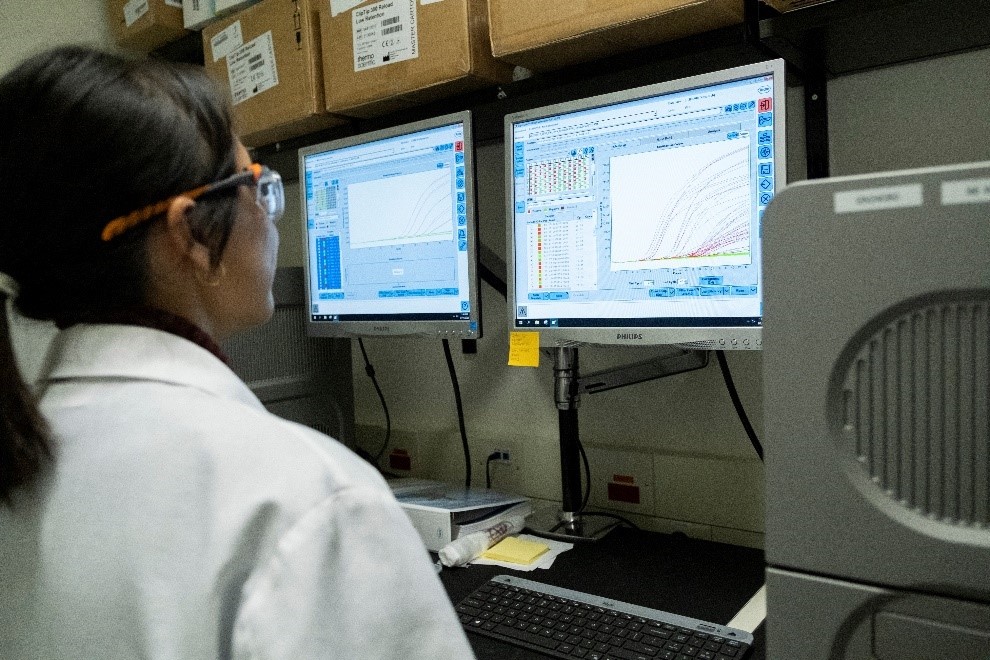Animal Health Laboratory develops swine virus tests to protect Ontario livestock

Large animal veterinarians rely on the University of Guelph Animal Health Laboratory (AHL) for reliable test results that help identify the cause of disease signs in Ontario’s livestock.
Twice this year, AHL diagnosticians tested samples that were negative for the common culprits, prompting further investigation that relied on their disease expertise, experience and detective skills.
“Diagnosticians are always on the lookout for what could potentially show up in our area”, says Josepha DeLay, Veterinary Pathologist at AHL. “They always have feelers out when doing pathology cases, asking ‘what’s different’?”
In November, AHL diagnosticians investigated the cause of pneumonia in nursery pigs.
“It presented as pneumonia, but didn’t match with typical pathogens. Routine tests were negative, so we looked for other agents: Is it a new organism? New to this area? Or an existing pathogen taking on a new role? Through an interplay of environment, feed and genetics, the role of an organism can change and become more important in that population,” says DeLay.
Through histopathology (examining tissues and cells) and additional testing, other common causes were ruled out. Suspecting this virus could be porcine astrovirus 4, a disease-causing virus the team had read about but never seen, they sent the sample to a U.S.-based laboratory with experience detecting it. This lab confirmed porcine astrovirus 4 via PCR test.
In January, staff investigated the cause of diarrheal illness, again in piglets, and tests were negative for common infectious agents. Based on their analysis, it could be porcine sapovirus—another pathogen never before identified in Ontario.
Because the lab didn’t have a test for this novel virus on-site, samples were again sent out to a U.S.-based provider for confirmation.
After confirming these new-to-Ontario diseases, the AHL virology team was engaged to develop in-house PCR tests; a process that can take anywhere from a few weeks to six months. Having in-house testing capacity helps ensure AHL is prepared for future outbreaks and testing needs to support Ontario swine producers.

Whether a pathogen is established in Ontario or new to the province, the lab shares positive test results with the submitting veterinarian so follow-up and treatment can be provided and the health of the herd protected.
When a new pathogen is identified in the province for the first time, AHL notifies the Ontario Ministry of Agriculture, Food and Rural Affairs (OMAFRA), the ministry responsible for animal health, food safety and farming, as soon as possible.
AHL also works closely with partners like the Ontario Animal Health Network to inform the province’s livestock veterinarians.
If the disease is considered “reportable” or “notifiable”, based on a predetermined list, AHL also notifies the Canadian Food Inspection Agency to identify risks to the $381-million annual Ontario export market.
The two recently identified viruses do not pose health risks to consumers or producers, nor do they affect the ability for Ontario producers to export their product.
However, if a highly transmissible viral disease like African swine fever (ASF) were to be detected locally, it would have devastating implications for producers. AHL plays a leadership role in the monitoring and surveillance—and potential testing scale-up—that are required for Ontario to be prepared for disease emergencies like ASF.
“We always have to be on guard,” notes DeLay. “Our obligation is to Ontario producers and the Ontario livestock industry. We’re always looking out for them and being one step ahead of the next disease that comes around.”
The AHL receives funding from the Ontario Agri-Food Innovation Alliance, a collaboration between the Government of Ontario and the University of Guelph.